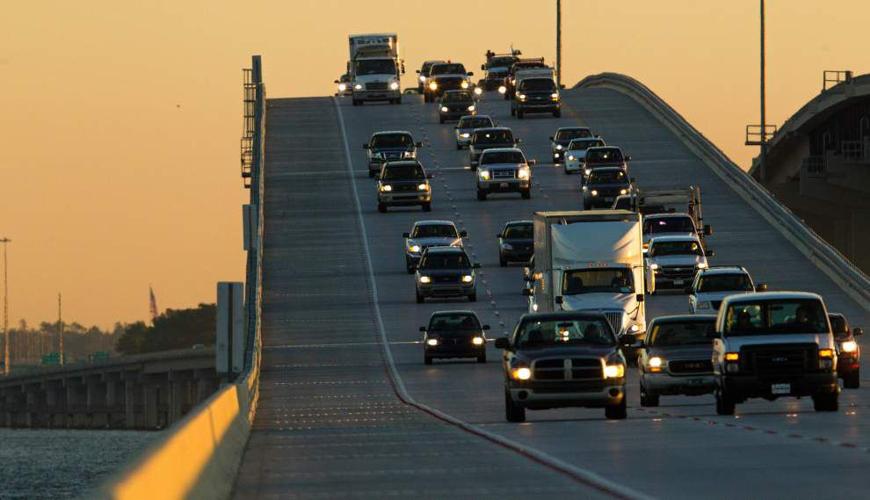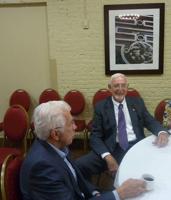The first increase in Louisiana's gas tax in more than a quarter of a century is all but certain to be one of the recommendations of a just underway transportation task force named by Gov. John Bel Edwards.
"I think that is what you are going to see coming out of it," said House Transportation Committee Chairman Kenny Havard, R-St. Francisville and a member of the influential committee.
The task force has only had one meeting, with another one scheduled for next month.
A push that may produce the most sweeping changes in Louisiana’s roads and bridges in nearly…
At least four others after that, plus regional meetings, are scheduled before the 18-member panel spells out its ideas by Jan. 1 for tackling the state's $12.7 billion backlog of road and bridge needs, and more.
The governor will then make his own recommendations to the 2017 Legislature, and any tax hike proposal will require two-thirds majorities in the House and Senate -- 70 and 26 respectively.
But there is already a widespread assumption that, aside from other components of a transportation package, boosting the state's long stagnant gas tax is almost sure to top the list.
Gov. John Bel Edwards wants to push for an increase in the state’s gasoline tax, he told bus…
Shawn Wilson, secretary for the state Department of Transportation and Development and co-chair of the panel, likes to note that the average motorists paid only $108 in state gasoline taxes in 2015.
That compares to $2,678 to eat out annually, $451 for liquor and $2,605 for entertainment, according to figures compiled by DOTD.

Motorists pay 38.4 cents per gallon in state and federal taxes, including 20 cents in state charges.
The 16 cents for rank-and-file projects was set in 1984.
The other four cents, which was supposed to finance 16 projects statewide called TIMED, took effect in 1990.
The 18.4 cents charged by the federal government was set in 1993.
Louisiana's gas tax rate ranks 41st in the nation, according to the Tax Foundation.
Edwards has made clear that the state's transportation system needs more money, and a wide range of ideas have been tossed around.
Gov. John Bel Edwards said Tuesday Louisiana has a "staggering" backlog of road and bridge n…
That includes public/private partnerships, linking the gas tax to the rate of inflation and allowing local communities authority to raise their own funds for road and bridge work.
Derrell Cohoon, who represents the Louisiana Associated General Contractors, noted public/private partnerships, toll roads and other steps have been tried.
"They are all good ideas but you have to generate more dollars on the front end to take care of most of these projects," Cohoon said. "We are going to have to do a gas tax."
Each penny of Louisiana's gas tax raises about $30 million.
Last year Cohoon's group backed a failed bid in the Legislature to increase the gas tax by 10 cents per gallon, or about $300 million per year.
Even in road-weary Louisiana any push to boost taxes, even for what many call a good cause, would trigger opposition.
Edwards has taken pains to point that gas tax revenue formerly diverted to State Police has been re-directed to the Transportation Trust Fund -- the key source of road and bridge projects.
Havard, who would likely sponsor any gas tax hike in the Legislature, said he plans to meet with Rotary Clubs and others to discuss safeguards for any new road and bridge revenue.
"People don't mind paying if they know it is going to stay there," he said, a reference to the TTF.
Motorists in Louisiana pay an average of $2.02 per gallon, down from $2.50 a year ago.
However, any sudden hike in gas prices, set off by events far from Louisiana, would complicate a campaign to increase the state tax.
The state's $12.7 billion backlog, which includes maintenance needs, is about to exceed $13 billion, officials said earlier this month.
Edwards is also relying on the task force for solutions to another $10.5 billion in mega projects on the shelf, including construction of a new bridge across the Mississippi River in Baton Rouge.
"I think the gas tax problem is that it has been static for 20 years," said Ken Perret, a former top official of DOTD and president of the Louisiana Good Roads & Transportation Association.
Perret's group called for a 10 cent gas tax increase nearly a year ago.
Despite huge political hurdles, Louisiana’s gasoline tax needs to rise by at least 10 cents …
"It hasn't been adjusted for inflation and the buying power is diminished," he said. "The gas tax is the most viable thing."

















